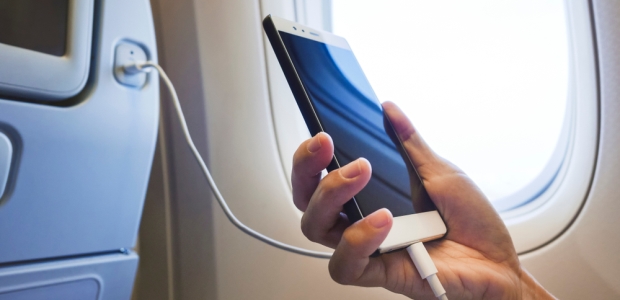
Three Agencies Collaborate on Charger Testing Recommendations
In joint tri-lateral letters to the standards development organizations in the three jurisdictions, the U.S., Canadian, and Mexican agencies recommended new testing to assess the potential for fire and burn hazards caused by AC-powered chargers for small electronic devices.
Three product safety agencies of North America -- technical staff of the U.S. Consumer Product Safety Commission, Health Canada, and Mexico's Consumer Protection Federal Agency (PROFECO) have developed consensus recommendations to improve test methods for ensuring the safety of alternating current (AC) chargers and universal serial bus (USB) chargers. CPSC's announcement called the collaboration "an unprecedented initiative."
In joint tri-lateral letters to the standards development organizations in the three jurisdictions, the agencies recommended new testing to assess the potential for fire and burn hazards caused by AC-powered chargers for small electronic devices. This is the first example of a joint consumer product safety standard recommendation developed among multiple governments that are not members of a single administrative region, according to the annoucement.
The joint letters conclude a multi-year project under the three agencies' Early Consultation Initiative, which aims to foster closer alignment of consumer product safety requirements through technical consultations. The strategy was to seek consensus approaches to consumer product hazards not yet being addressed through formal regulatory or standards work.
In the joint letters to UL, the Canada-based CSA Group, and the Mexican government's Directorate General of Standards, staffers cited numerous injuries associated with the chargers, including burns from contact with hot surfaces on an electronic device or the charger itself; fires and explosions that initiated within a charger or in one of the cords attached to the charger; and electric shock injuries from a user's contact with an exposed energized conductor when the charger housing is breached by melting or when the housing breaks apart. The incidents also included lithium-ion battery fires as a result of improper charging.
The letters noted that incidents are more prevalent when an AC charger or USB charger has not been evaluated and certified by a third-party testing facility. The trilateral team examined incident data and analyzed existing voluntary standards before proposing new testing procedures and requesting that standards developers add the tests to their current standards.
"This initiative has proven, at least on a small scale, that multiple jurisdictions can develop consensus recommendations to improve voluntary safety standards, if they consult early and compare data and experience," said CPSC Acting Chairman Ann Marie Buerkle. "We are very hopeful this will provide a template for future initiatives."
She said a second round of the Early Consultation Initiative will be under way this year.